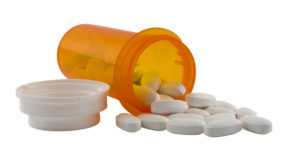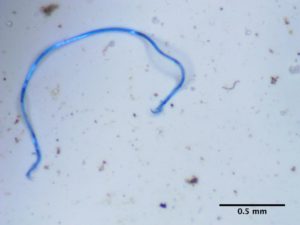 A recent study gives support to eating a diet with real unprocessed foods and avoiding foods with additives as much as possible. The study found that the commonly used food additive known as xanthan gum (E415 in Europe) can cause disruptions to our gut microbiome.
A recent study gives support to eating a diet with real unprocessed foods and avoiding foods with additives as much as possible. The study found that the commonly used food additive known as xanthan gum (E415 in Europe) can cause disruptions to our gut microbiome.
The gut microbiome or microbiota is the community of microbes living in our intestines, and which are critical to good health. The international team of researchers found that the gut microbes changed when exposed to the additive, so as to be able to digest the xanthan gum.
Xanthan gum is used as a thickener or stabilizer in many foods, including ice cream, sweets, chocolate milk, baked goods, ready-made sauces and dressings. [Note: If present, it is listed in the ingredients on food labels.]
Bottom line: Rather than being harmless and not having any effects, food additives may have effects on or disrupt our gut microbes. Food additive effects may be minimal or can actually cause harm. For example, some emulsifiers (e.g., soy lecithin, carrageenan, polysorbate-80) can promote gut inflammation and alter the gut microbiome in a negative or harmful way
From Medical Xpress: Widely used food additive affects the human gut microbiota
Have you heard about the food additive E415? It is also known as xanthan gum. Most likely, you eat it several times a week. Xanthan gum is used in everyday foods such as baked goods, ice cream and salad dressings. The additive is also widely used as a substitute for gluten in gluten-free foods. ...continue reading "Some Food Additives May Alter Our Gut Microbes"

 HAPPY EARTH DAY!
HAPPY EARTH DAY! Some good news. A recent large study found that a healthy diet rich in plant-based foods can lower your risk of getting type 2 diabetes.
Some good news. A recent large study found that a healthy diet rich in plant-based foods can lower your risk of getting type 2 diabetes. A large recent
A large recent 
 The 13 people in
The 13 people in  Pregnancy should last 9 months, but sometimes it doesn't. With medical advances some babies born as early as 22 or 23 weeks can now survive. Truly miraculous! But how are these extremely preterm babies doing long-term?
Pregnancy should last 9 months, but sometimes it doesn't. With medical advances some babies born as early as 22 or 23 weeks can now survive. Truly miraculous! But how are these extremely preterm babies doing long-term? Parents of babies overwhelmingly want to do the right thing for their babies. When formula makers make medical claims about the formulas they sell - parents believe them. For years companies such as Danone and Nestle marketed certain formulas as reducing milk allergies and eczema in babies. But the claims were (are) not true!
Parents of babies overwhelmingly want to do the right thing for their babies. When formula makers make medical claims about the formulas they sell - parents believe them. For years companies such as Danone and Nestle marketed certain formulas as reducing milk allergies and eczema in babies. But the claims were (are) not true!